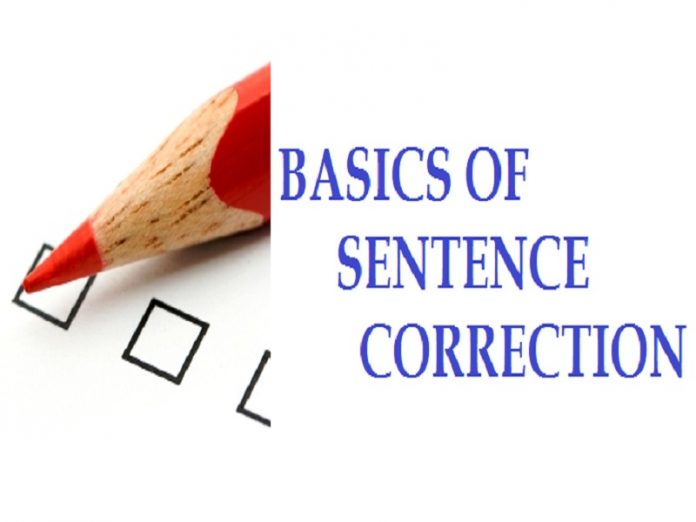Basics of Sentence Correction
Dear Friends,
As you all can see that in the banking exam new trend Sentence Correction is a very important topic of English Language topic. Usually 5-6 questions are asked from it. You can easily score good marks if you have a good understanding of the basics of Sentence Correction. One thing that is essential to understand is that questions from this topic might not be specifically related to grammatical errors.
Let us now have a look at the common errors that one might encounter while solving these questions. However, remember that these rules are generic, exceptions always exist for several cases.
Important Points to keep in mind while doing sentence correction :
- The verb in the sentence must comply with the subject of its sentence. A singular subject takes a singular verb while a plural subject takes a plural verb.
-
If two or more subjects are connected by ‘and’, then usually a plural verb is used with them.
- If two singular subjects are connected by ‘either / or’ or ‘neither / nor’, they usually take a singular verb. If either of the one subjects is plural, the verb will be plural.
- If the subject is followed by words such as, ‘besides’, ‘not’, ‘as well as’,’along with’ etc, then the singular verb will follow singular subject.
- Difference in the usage of ‘I’ and ‘Me’ – Both I and me are 1st person singular pronouns. However, I is a Subject Pronoun whereas me is an Object Pronoun.
- Sentences that begin with ‘each’, ‘everyone’ and ‘anyone’ will have a singular verb.
- Modifier related errors – Ensure that the participle in the sentence is not without the subject.
- Do not forget to look up for error of repetition, also know as redundancy.
-
Difference in the use of few and less – Few is used for countable nouns whereas Less is used for uncountable noun.
Key Points to Remember :
- If in doubt, try substituting the options (in case of Sentence Improvement) or read the sentence properly and try to understand if it sounds right to you.
- Read out the sentence and try eliminating the parts which require no improvement.
- Don’t waste to much time if you’re stuck with some question and move on to the next one.
- Look up both the grammatical errors as well as word usage in the sentence.
- Practice thoroughly to have a good hold of the topic.






















